University chief deported after blowing the whistle on cronyism and corruption
The students love their vice-chancellor but the Fijian government wants him gone. Mark Drummon on the power struggle at the top of the University of the South Pacific
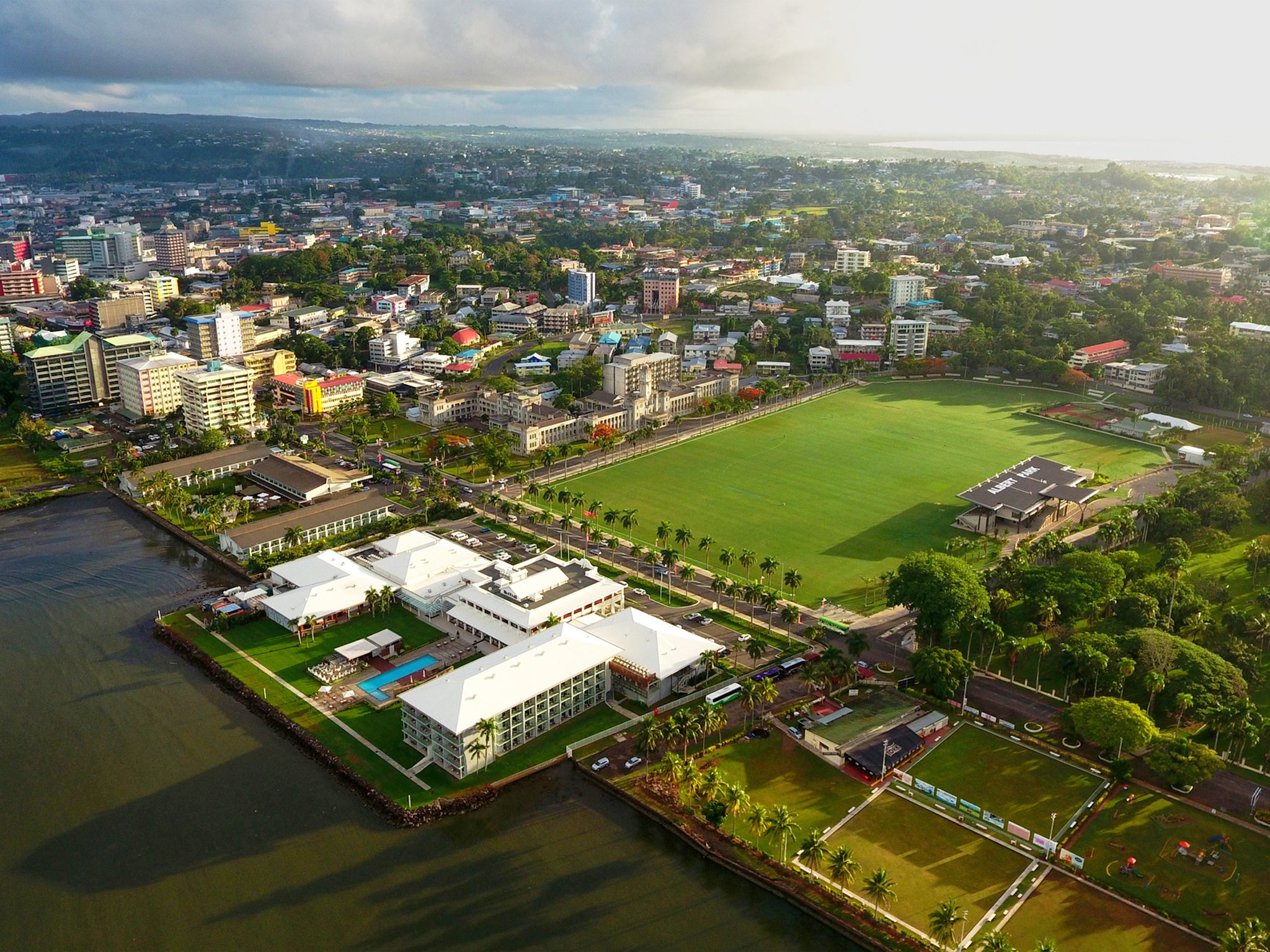
At first there is a woman’s voice coming from the back of the house in the dead of night. Then there is repeated ringing of the doorbell. Other voices, male ones, are coming through the front door now; the voices are authoritative and increasingly impatient. Instructions are barked, telling those inside to open up. Fists bang the door. Soon plainclothes police officers are inside and shortly afterwards 63-year-old professor Pal Ahluwalia and his wife Sandy Price are forcibly escorted to the airport. The vice-chancellor of the most prestigious university in Fiji is being deported on the orders of the Fijian government.
The University of the South Pacific (USP) is pretty. Its main campus building in Fiji has a clean, modern design and is fronted by rows of palm trees. But behind the attractive facade and beneath a clear blue South Pacific sky, all hell is breaking loose. An internecine conflict has broken out. On one side stands the vice-chancellor, professor Pal Ahluwalia, who claims to have blown the whistle on mismanagement and malpractice at the university; opposing him are pro-chancellor Winston Thompson and the Fijian government, who say Ahluwalia is guilty of both breaking USP hiring protocols and of unspecified immigration violations.
Established in 1968, the USP is a regional university, owned and funded by 12 nations: the Cook Islands, Fiji, Kiribati, Marshall Islands, Nauru, Niue, Samoa, Solomon Islands, Tokelau, Tonga, Tuvalu and Vanuatu. Additional funding comes from regional partners such as Australia and New Zealand. The office of the chancellor, a largely ceremonial role, rotates every 12 months among the heads of state of the dozen aforementioned Pacific islands (Nauru president Lionel Aingimea is the incumbent). Governance is overseen by the USP council, which meets twice a year. A smaller executive committee, comprising 10 or so council members who hold senior positions at the university, can make decisions between the biannual full council meetings. This committee is headed by the pro-chancellor, which is a position of limited authority. The university’s chief executive is the vice-chancellor (VC).

Professor Pal Ahluwalia formally assumed the office of vice-chancellor on 1 January 2019. For the preceding two months he was vice-chancellor designate, based at the USP’s Suva campus in Fiji. Things did not go smoothly. “This two-month transition period was supposed to be for the purposes of a handover from the former VC [Rajesh Chandra],” says Ahluwalia. “Despite my many attempts to meet with the former VC, he did not wish to meet with me.”
Ahluwalia also says that during his first few months in office, members of staff approached him with tales of cronyism and fiscal impropriety, which had occurred under the previous vice-chancellor. Ahluwalia decided to write a report about the matters raised during his transition period. Titled Issues, it was completed within seven weeks of his becoming VC proper.
“When I commenced as the VC on 1 January 2019, I instituted strict financial and human resource controls,” explains Ahluwalia. “By personally closely monitoring these two areas, it highlighted to me what in my opinion were alleged breaches of USP policies and procedures. I was concerned there may have been abuse of office with some obvious cases of alleged fraud and corruption at the USP. It was at this time that I wrote the Issues paper.”
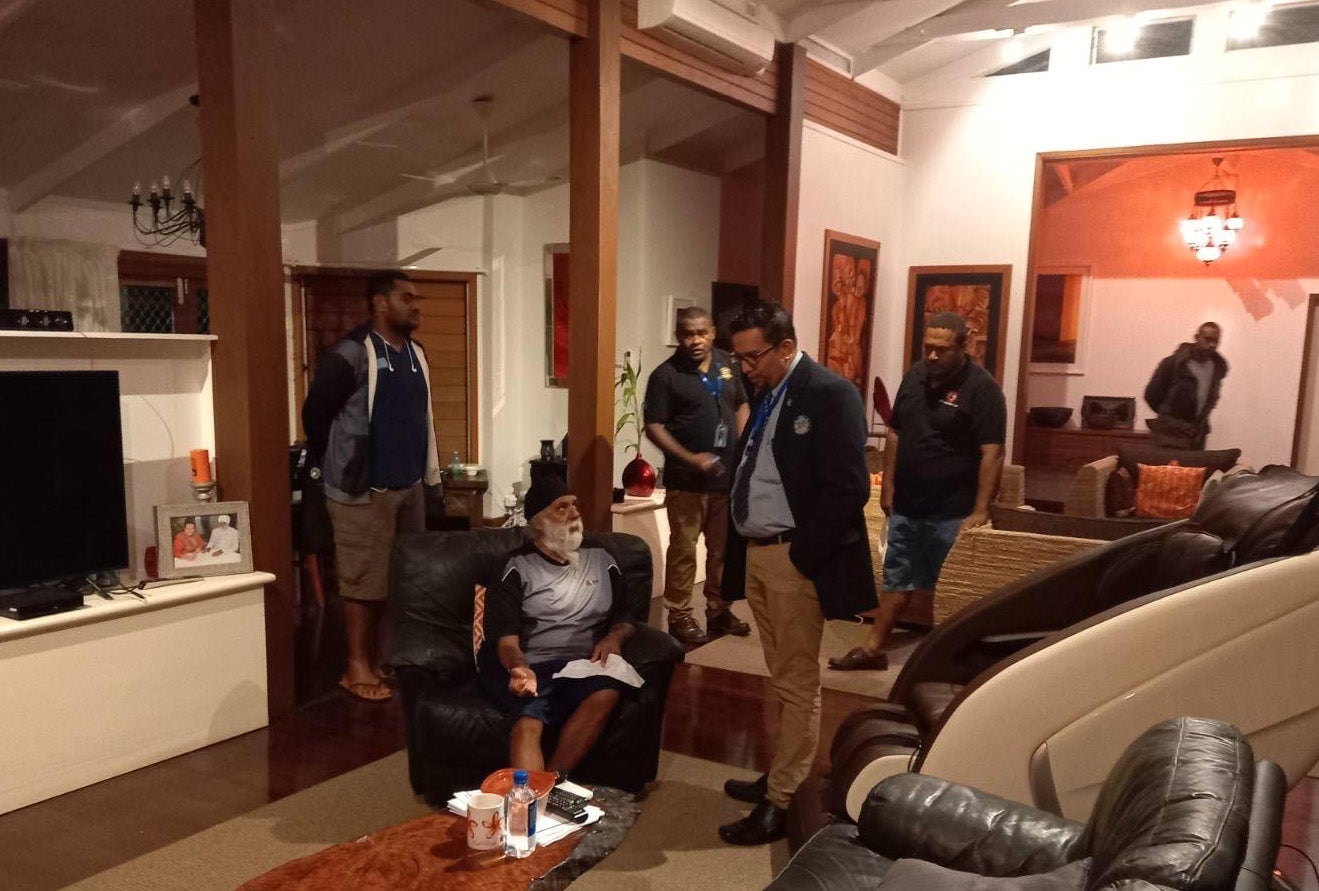
Another source of tension was the USP’s strategic plan. In negotiations prior to his taking up the appointment, Ahluwalia stressed that he should be involved in drafting it. But a plan was devised without his input. After taking office, Ahluwalia began the process of revising it. This brought him into conflict with senior management who had worked on the initial strategic plan.
In the period following the writing of Issues, Ahluwalia’s relationship with powerful figures at the university, and in particular with pro-chancellor Winston Thompson, a career civil servant who once served as Fiji’s ambassador to the US, steadily deteriorated. Those associated with the improprieties mentioned in Ahluwalia’s report made counter allegations against the VC. On 8 June 2020, the executive committee, chaired by Thompson, suspended Ahluwalia, pending an investigation, for alleged mismanagement practices.
It’s the afternoon, 8 June 2020, and another sunny day in paradise. Professor Ahluwalia is standing in front of his office at the USP’s Laucala campus, and is addressing a crowd of students. He is of medium height and build, white-bearded, and is wearing a blue-patterned Hawaiian-style short-sleeved shirt. Ahluwalia, a Sikh, is also wearing a black turban.
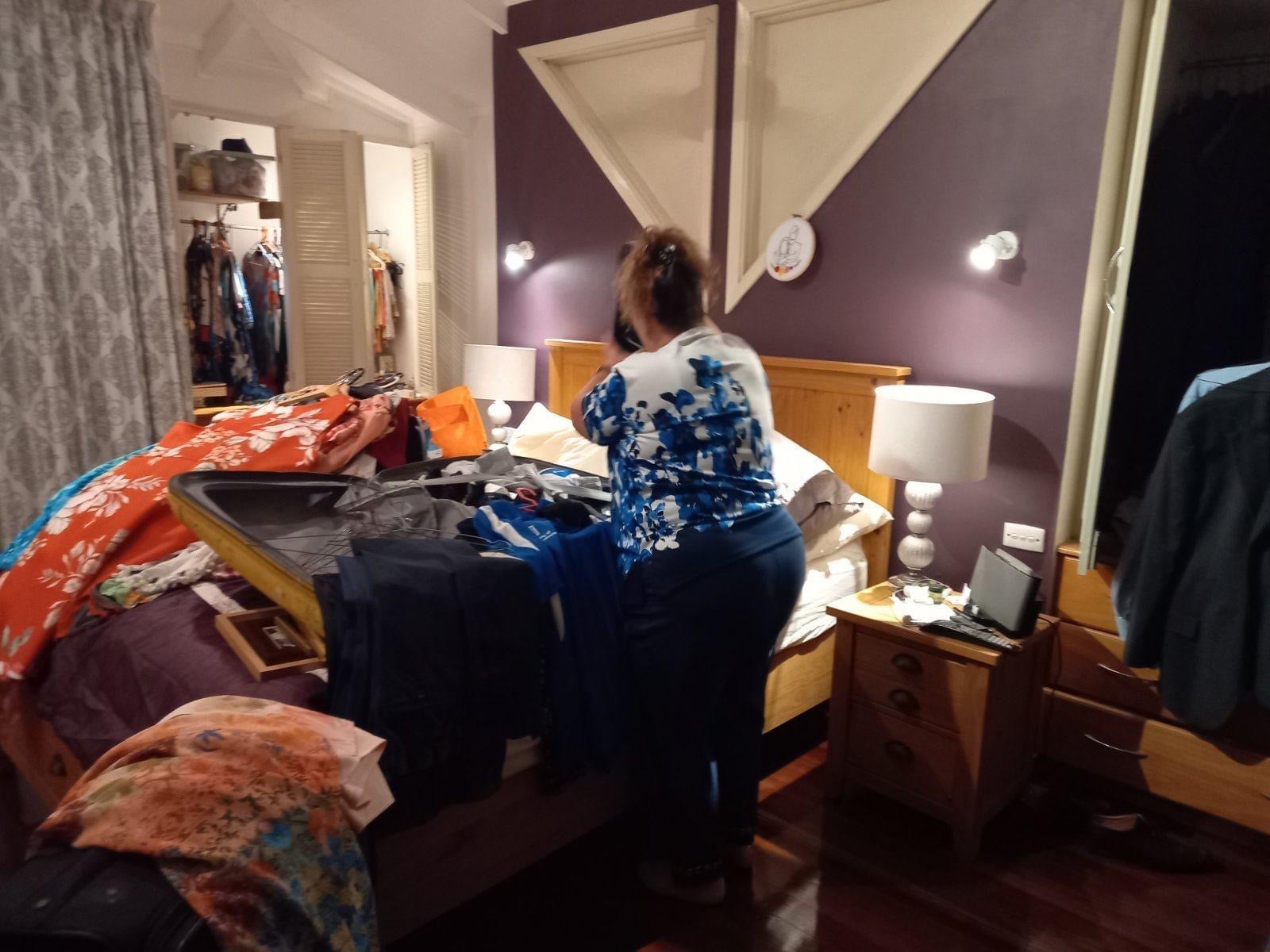
“From the bottom of my heart, and with my love for God, I want to say how much I appreciate every one of you,” he begins. “You are all the pillars on which I stand here.” There is much whooping and cheering. “The second thing I want to say is that … I have only read what is on FBC [Fiji Broadcasting Corporation]. Nobody has officially contacted me but I’m told I am to step aside.”
“Nooooo,” shout the crowd.
“We will fight this together,” says Ahluwalia.
“Yeeeessss,” comes the response.
“We will do it within the law, we will do it peacefully, we will do it to the best of our abilities, and be sure that God is going to be with us,” says the professor. He is feeding off the energy of the audience. “The evil that has done this university so much damage is continuing, and the rot which has set in, which I’m trying to clean up, they don’t like me doing the job I’m doing, but with God’s grace we will clean up this university. Even if I’m not here, this university is a great university. And you will all fight for the justice that I have started, even if I’m not here. Every one of you now knows that we cannot take this lying down. So don’t worry, we are going to fight this. I will fight this until every drop in my body…” His remaining words are drowned out by crowd hysteria and chants of “We want Pal”.
“God bless you all,” continues Ahluwalia after the crowd has quietened down. “I love you all. I think we will take this to the next level. It is a matter for our council. It’s the council that decides whether I stay in office. They [the executive committee] might have won, suspending me for a while, but I have not done anything wrong. Let the investigators show who has done what. So I just wanted to come out and say how much I love your support. You are the backbone of this university. This university is nothing without its students and staff. God bless you all.” The speech is wrapped up with a moment of group prayer.
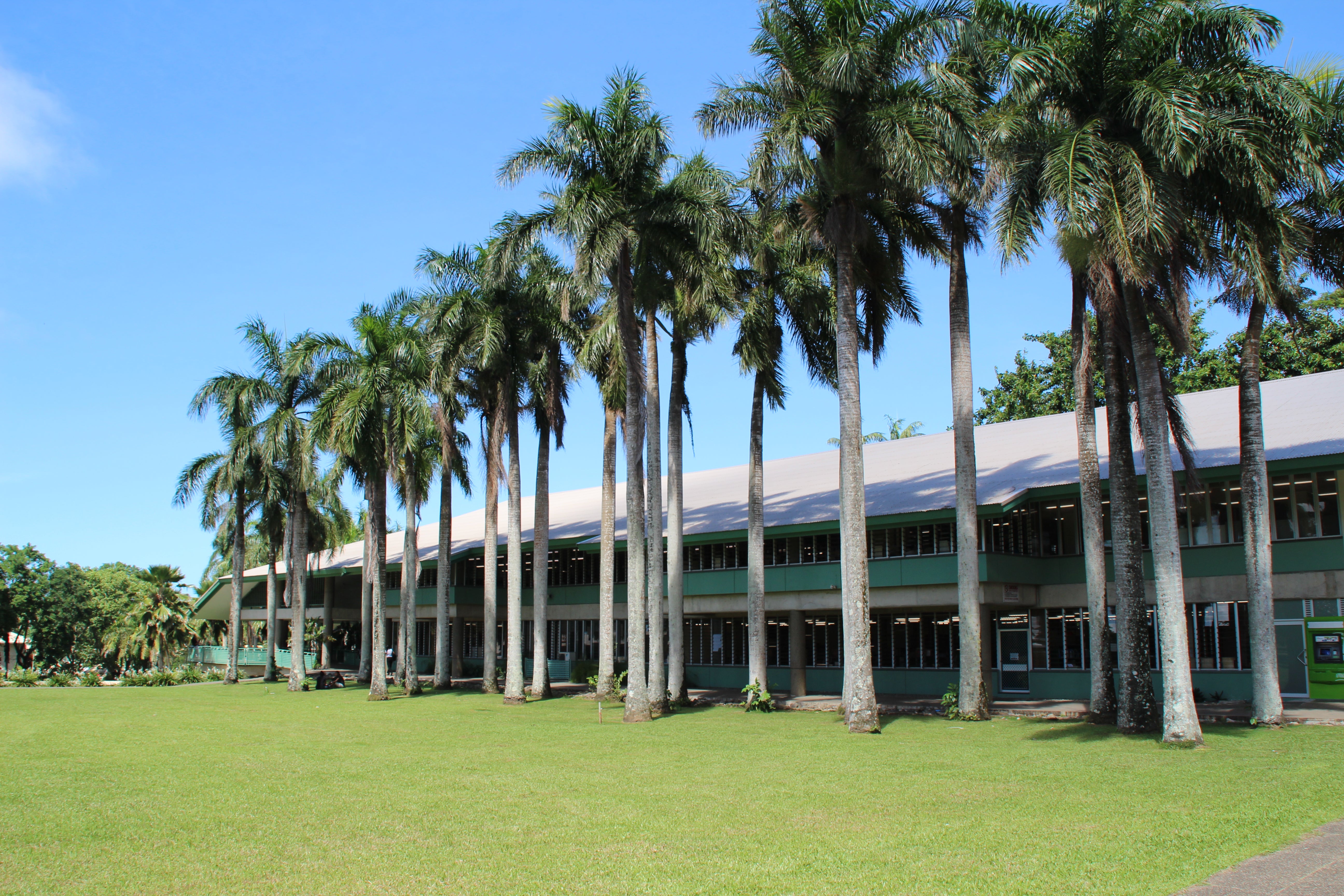
A significant portion of the student population at the USP seems to have taken to the VC. Ahluwalia, operating an open-door policy with both staff and undergraduates, is perhaps more approachable than his predecessors. Also, many Fijians are practising Christians, with Methodism the dominant faith on the island, and in Ahluwalia, a religious man, they have found a leader who shares their devotion to God. And in the days following Ahluwalia’s removal as vice-chancellor, students organise a number of rallies in support of him. The police move to shut down some of these, citing Covid-related violations. Following one such rally, held on the grounds in front of the university library at the Laucala campus, the USP’s most senior librarian, Libby Fong, is summoned for questioning.
It’s 10 in the morning, 16 June 2020, a wet and gusty Tuesday in Toorak, a district of the Fijian capital Suva. By South Pacific standards, it’s a cool 24 degrees Celsius. Fong is wearing a black blazer over a red floral-patterned dress as she walks along the damp street towards the entrance of the Fiji Police Force CID HQ. For the next hour, the 62-year-old librarian is quizzed by police.
“They [the police] were interested in what the gathering was about,” Fong tells Australian broadcaster ABC Radio soon after she was released. “They asked me about whether I support Pal and that kind of thing. So basically I said ‘no comment’ to all the questions.” A police statement says the officers were investigating potential breaches of coronavirus restrictions. “They were using none compliance with Covid, I think, to try to get our stand on whether we were protesting,” continues Fong. “And we weren’t protesting. What we said all the way through was we have been supporting vice-chancellor Pal. So their aim was using Covid but I think they had another agenda. They were very professional but I did get the feeling that there is covert intimidation.” Around the same time the police serve a search warrant on the Fiji Times newspaper, seeking video footage and photographs of the rally.
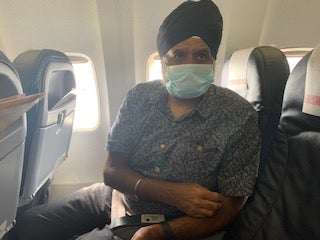
On 19 June 2020, the full university council reinstates Ahluwalia as VC, admonishing the executive committee for “not following due process” and deeming the VC’s suspension illegal. Ahluwalia resumes his post, but with resistance from Thompson and the Fijian government. For the rest of the year, grievances bubble up.
It’s a little after eleven at night on 4 February 2021, and Ahluwalia and his wife are asleep. In the blackness, a female voice is calling the vice-chancellor’s name. It wakes Price. A woman is standing inside the couple’s backyard. She is accompanied by three or four men who will later identify themselves as police officers. The garden gate has been broken open. The voice is instructing Ahluwalia and Price to go to their front door. By now the bell is being rung constantly and a fist is banging on the door. In addition to the four or five people in the backyard, there are eight to 10 at the front.
Price makes a call to Dr Giulio Masasso Tu’ikolongahau Paunga, the deputy vice-chancellor, who lives nearby. When the police see the couple on the phone, they threaten to break down the door. At this point Ahluwalia and Price open the front door and as many as 15 officers file into the house. All the couple’s electronic devices are immediately confiscated and they are told to dress and pack. Ahluwalia is handed a letter from the Fijian Immigration Department.
“Dear Mr Ahluwalia
[…]
“The Minister has declared you and your partner, Ms Price, as Prohibited Immigrants under the Immigration Act 2003, Section 13 (2) (g) which states: a person who prior to or after entry into the Fiji Islands, as a result of information received from any country through official or diplomatic channels, or from any other source the Minister considers reliable, is deemed by the Minister to be a person who is or has been conducting himself in a manner prejudicial to the peace, defence, public safety, public order, public morality, public health, security or good government of the Fiji Islands.
“In accordance to the above, you and your partner, Ms Price, are now unlawful in Fiji and hereby ordered to leave Fiji with immediate effect.
“Sincerely
Amelia Komaisavai
Acting Director of Immigration”
A three-car convoy whisks the professor and his wife at high speed to Nadi International Airport, Fiji’s main airline hub. They arrive at the departures terminal at 3am. They are informed that they will be on a 10.30am flight to Brisbane (Ahluwalia holds both Canadian and Australian citizenships). They spend the next seven hours in a small airless room under constant supervision. “My husband is diabetic and needs to eat breakfast,” says Sandy. “No food is available until the flight,” is the reply. The couple is offered water.
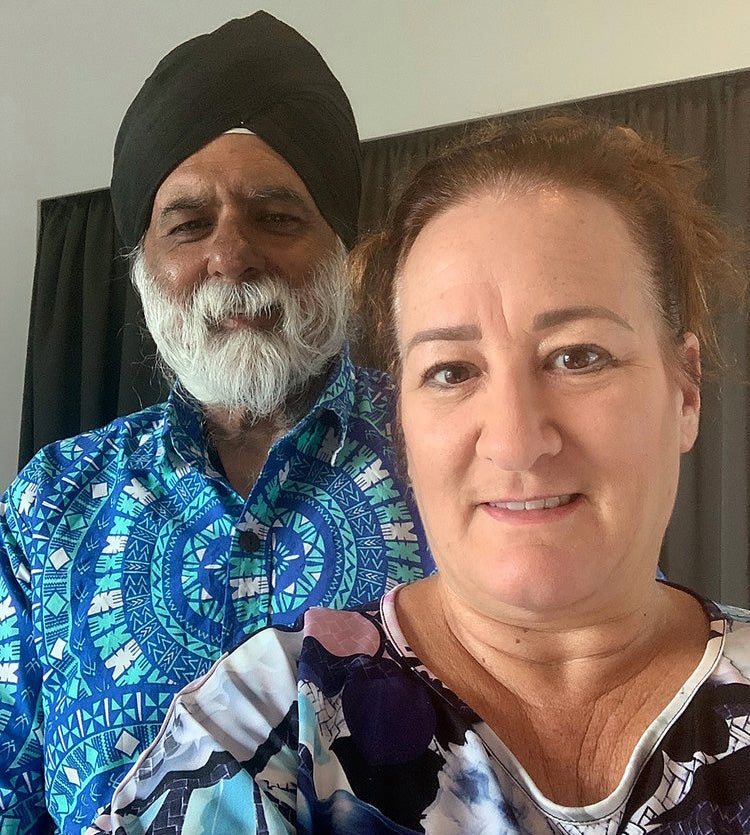
Only when Ahluwalia and Price are on the plane are their phones and laptops returned to them. The couple’s passports are only returned once the plane lands in Australia.
There appear to have long been divisions at the USP. Some of the other member nations are resentful of the influence the Fijian government exerts over their shared institution, and some give their support to Ahluwalia following his deportation. The current chancellor, Nauru President Aingimea, a former human rights lawyer, invites the VC to work out of the USP campus in his country until the university resolves this latest development. After completing a compulsory 14-day stay in a quarantine hotel in Brisbane, Ahluwalia and Price fly to Nauru, where the VC remains in limbo for the next four months.
On 2 June 2021, the USP council votes to back Ahluwalia as VC, offering him a new three-year contract. It is agreed he will move to the Samoa campus in light of the Fijian government’s refusal to give him a visa.
In early August, the USP makes this announcement: “Professor Pal Ahluwalia resumed office today, Monday 9 August 2021, for an initial three-year term. He is currently based at the Nauru Campus awaiting travel to Samoa. Professor Ahluwalia thanked God, the President of Nauru, the Government of Nauru, the USP council and staff and students for their unwavering support for him and his wife during the last few months.”
In late August, Fiji’s attorney general Aiyaz Sayed-Khaiyum announces that the government will be withholding grants for the USP until the institution replaces Ahluwalia as vice-chancellor, an appointment the Fijian government regards as being illegal.
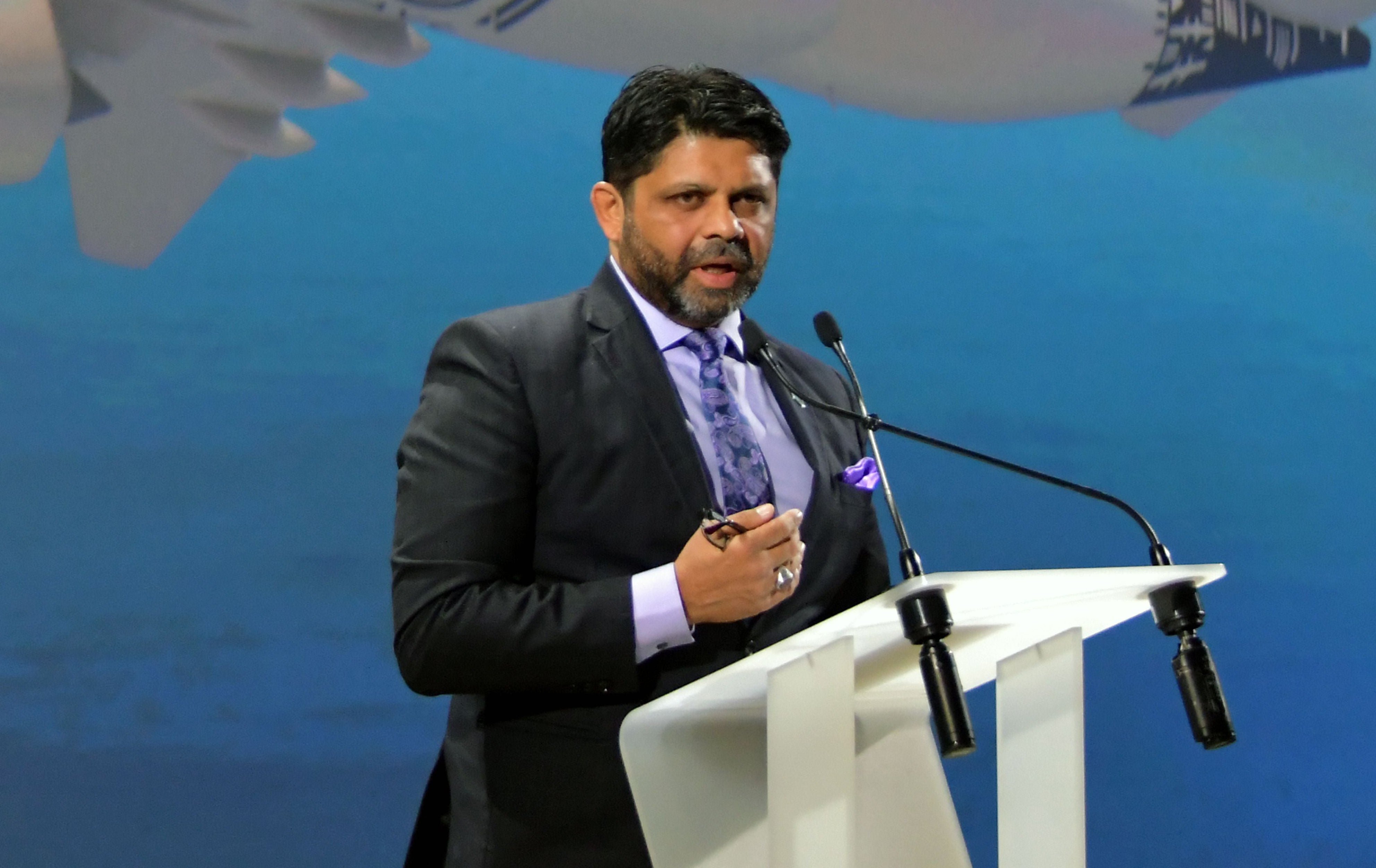
“Fiji does not accept Ahluwalia as the vice-chancellor and will not provide any funding to USP for as long as he remains the supposed vice-chancellor,” Sayed-Khaiyum tells parliament. The attorney general (AG) claims that since Ahluwalia’s appointment in November 2019, there have been “serious allegations [against him] of mismanagement, and a failure to adhere to principles of good governance, established rules and procedures of USP”.
The AG cites the post-retirement appointment of Dr Morgan Tuimalealiifano to the position of director of assurance and compliance, which the AG says was pushed through by Ahluwalia despite a conflict of interest and the absence of due process. Sayed-Khaiyum also accuses Ahluwalia of making other appointments without adhering to USP policy. The director of human resources was appointed by the VC despite the candidate not meeting a minimum requirement of holding a masters degree, says the AG.
Over the course of this dispute, two independent audits have been commissioned. The first, by BDO New Zealand, looked into the allegations made by Ahluwalia in his paper Issues. Subsequently, KPMG Fiji was tasked with verifying the counter claims made by pro-chancellor Thompson, which accused Ahluwalia of mismanagement and university protocol breaches. Both audits avoided reaching any clear conclusions, allowing each side to put their own spin on what the reports say. On balance, it seems that the BDO report was able to substantiate a few of the claims Ahluwalia made, but was unable to conclude one way or the other on a number of other allegations due to a lack of access to university documents and personnel. The KPMG audit found little evidence to support the accusation that the VC has run roughshod over USP protocols, but it did find that some processes hadn’t been followed in a couple of instances.
Finances have been impacted, a number of teaching and administrative positions are unfilled, and there has been considerable reputational damage to a university that was seen as pre-eminent in the region
As things stand today, Ahluwalia is still in Nauru. He expects to relocate to the USP campus in Apia, Samoa, in the coming months (Covid-related travel restrictions and closed borders have delayed this). He broadly has the support of the university council and the student body, both of which see him as a reforming VC who blew the whistle on cronyism and corruption. The pro-chancellor and his allies continue to resist Ahluwalia’s authority, casting him as autocratic and self-serving, and the Fijian government refuses to contribute to USP funding for as long as Ahluwalia remains VC.
The infighting at the top has naturally had a negative effect on the running of the institution. Finances have been impacted, a number of teaching and administrative positions are unfilled, and there has been considerable reputational damage to a university that was seen as pre-eminent in the region. Alumni include Mark Brown, the current prime minister of the Cook Islands, Ludwig Scotty, twice president of Nauru, Akilisi Pohiva, who was prime minister of Tonga until his death in 2019, Bikenibeu Paeniu, a two-time former prime minister of Tuvalu, and Joe Natuman, a former Vanuatuan prime minister.
This saga is likely to rumble on for another couple of years. The university council would like to extend Ahluwalia’s contract, though USP regulations don’t allow any member of staff to work beyond the age of 65, and Ahluwalia is 63. For now there is a fragile truce, with both sides entrenched, and with tensions simmering beneath a perfect blue South Pacific sky.






Join our commenting forum
Join thought-provoking conversations, follow other Independent readers and see their replies
Comments